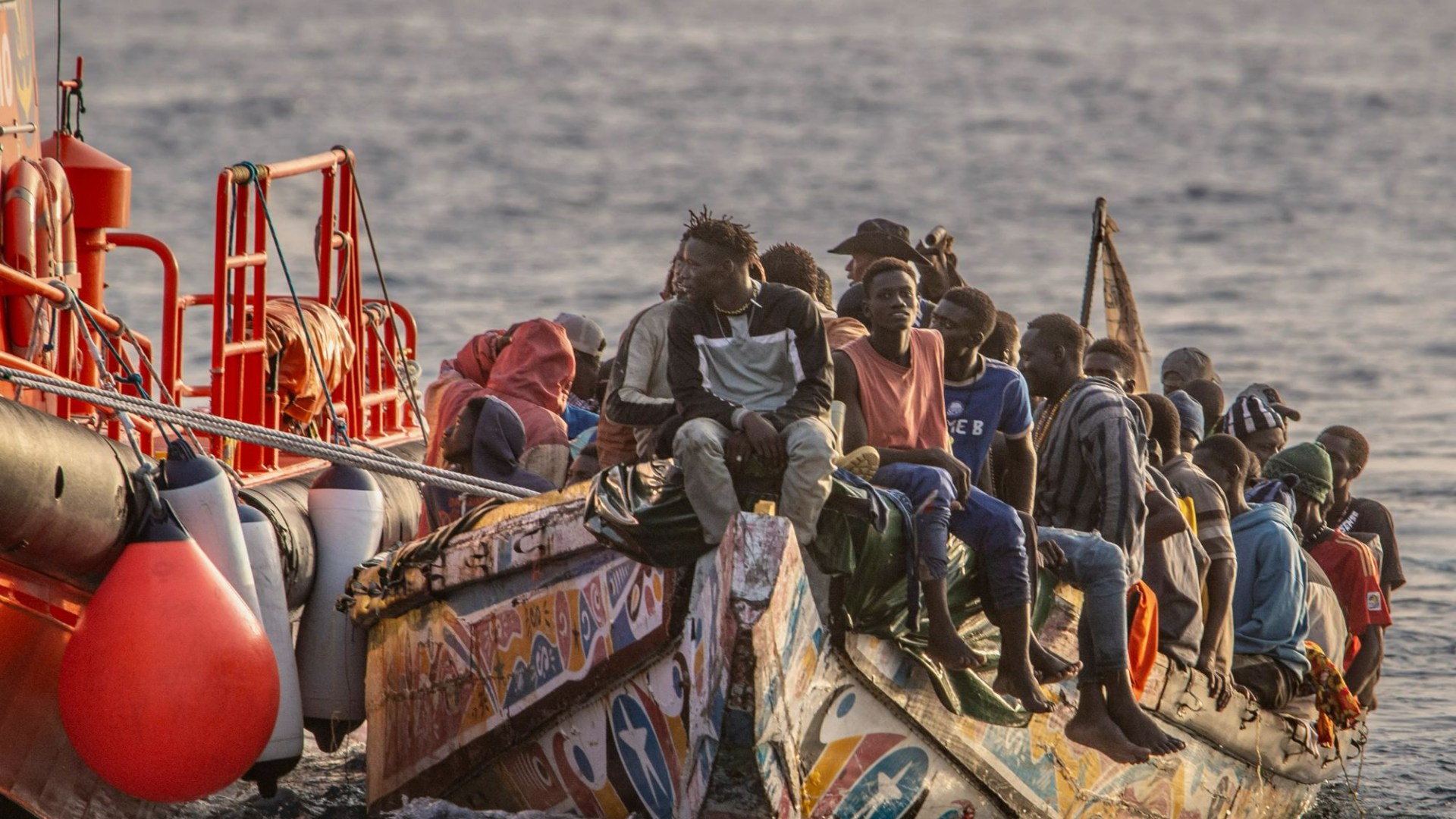World
Canary Islands Officials Call for Emergency Over Migrant Surge

Officials on the Canary Islands are urging the Spanish government to declare a state of emergency in response to a significant increase in migrant arrivals. Last year alone, approximately 47,000 people reached Spain via small boats, with the number of unaccompanied minors nearly three times the official capacity for housing them.
The crisis has escalated sharply in 2024, with 10,882 individuals arriving in the Canary Islands by mid-May. This influx includes a considerable number of young children, prompting authorities to express concerns over their safety and welfare. The government has previously stated that the region can accommodate 1,737 migrant children, yet the current number stands at 5,017 minors, indicating a severe strain on local resources.
In light of these figures, officials from the Canary Islands formally requested that a migration emergency be declared. Reports indicate that a decree was approved last week by Spain’s Council of Ministers, which will enable the Ministry of Youth and Children to initiate reforms to immigration laws. This will facilitate the transfer of unaccompanied minors from the Canary Islands to mainland Spain.
Canarian President Fernando Clavijo emphasized the urgency of the situation, stating, “There are no longer any excuses to begin this process.” He underlined the necessity for proper procedures to ensure the safety and well-being of the children arriving on the islands.
The growing number of migrants has raised alarm among officials, who warn that the situation poses a “security risk.” According to a report by Tragsa, an agency collaborating with the Ministry of Social Security and Migration, the unprecedented rise in arrivals since summer 2023 has created circumstances that threaten public order. The report highlighted the urgent need for basic services to support the influx of migrants, as existing infrastructure struggles to cope with the demand.
Interestingly, despite the ongoing crisis, data from Spain’s Ministry of the Interior indicates a decrease in migrant arrivals this year compared to the same period in 2024. From January 1 to May 15, 16,586 migrants arrived in 2024, which is nearly 6,000 more than the current figures for 2024. This trend reflects a wider decline in migration across Spain, with a total reduction of over 5,500 migrants nationwide.
The humanitarian aspect of this issue is significant, as the journey to Europe often results in tragic losses. The non-governmental organization Caminando Fronteras estimates that more than 9,000 migrants died attempting to reach Spain over the past year, underscoring the dangers associated with these maritime crossings.
Broader Migration Challenges in Europe
The migrant crisis is not confined to the Canary Islands; both the United Kingdom and broader Europe are grappling with increasing challenges related to migration. The UK has witnessed a sharp rise in small boat crossings across the English Channel, leading to substantial pressure on its asylum system. Currently, over 32,000 asylum seekers are residing in taxpayer-funded hotels, which has sparked public outcry and protests against the government’s handling of the situation.
In response to these challenges, the UK government is exploring various measures, including a controversial “one-in, one-out” agreement with France. Meanwhile, European countries are tightening their migration policies, influenced by the rising power of far-right political parties.
The Canary Islands, along with other popular holiday destinations such as Majorca and Ibiza, have seen a near-daily influx of migrants. Local officials report that residents are at their “wits end” due to the constant arrivals. The islands have become a crucial entry point for migrants attempting to reach mainland Europe, with concerns bubbling over as communities seek solutions.
In Italy, a recent agreement with Albania aims to process up to 36,000 migrants annually outside the European Union, while countries like Poland, Hungary, and Croatia are reinforcing their borders to prevent unauthorized entries. Portugal has taken strict measures, deploying police to beaches and expediting deportations.
A particularly tragic incident unfolded just last week when at least 69 individuals drowned after a boat capsized off the coast of Mauritania. Rescuers managed to save 17 people, but searches for additional passengers are ongoing, further highlighting the perils faced by those attempting to reach the Canary Islands from West Africa.
As the situation remains fluid, local governments in the Balearic Islands have begun exploring strategies similar to those in the UK, including potentially repurposing tourist hotels to accommodate migrants. The approach to managing the influx continues to evolve, reflecting the complexity and urgency of the migrant crisis facing Spain and Europe as a whole.
-

 Health3 months ago
Health3 months agoNeurologist Warns Excessive Use of Supplements Can Harm Brain
-

 Health3 months ago
Health3 months agoFiona Phillips’ Husband Shares Heartfelt Update on Her Alzheimer’s Journey
-

 Science2 months ago
Science2 months agoBrian Cox Addresses Claims of Alien Probe in 3I/ATLAS Discovery
-

 Science2 months ago
Science2 months agoNASA Investigates Unusual Comet 3I/ATLAS; New Findings Emerge
-

 Science1 month ago
Science1 month agoScientists Examine 3I/ATLAS: Alien Artifact or Cosmic Oddity?
-

 Entertainment5 months ago
Entertainment5 months agoKerry Katona Discusses Future Baby Plans and Brian McFadden’s Wedding
-

 Science1 month ago
Science1 month agoNASA Investigates Speedy Object 3I/ATLAS, Sparking Speculation
-

 Entertainment4 months ago
Entertainment4 months agoEmmerdale Faces Tension as Dylan and April’s Lives Hang in the Balance
-

 World3 months ago
World3 months agoCole Palmer’s Cryptic Message to Kobbie Mainoo Following Loan Talks
-

 Science1 month ago
Science1 month agoNASA Scientists Explore Origins of 3I/ATLAS, a Fast-Moving Visitor
-

 Entertainment2 months ago
Entertainment2 months agoLewis Cope Addresses Accusations of Dance Training Advantage
-

 Entertainment4 months ago
Entertainment4 months agoMajor Cast Changes at Coronation Street: Exits and Returns in 2025









